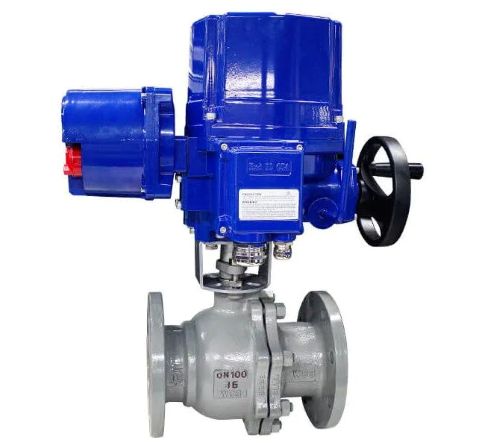


What Is a Motorized Ball Valve Used For? What Is a Motorized Ball Valve?
Introduction
In today’s era of automation, motorized ball valves have become essential in managing fluid control across residential, commercial, and industrial systems. These electrically actuated valves provide precise, efficient, and remote-controlled flow regulation for water, gas, oil, and more.
What Is a Motorized Ball Valve?
Also known as an electric ball valve, this device uses an electric actuator to rotate a ball with a hole through it, allowing or blocking flow. Unlike manual valves, motorized types offer automated control, ideal for integration into systems like SCADA or PLC networks. They come in various sizes and materials, suitable for everything from home plumbing to heavy industrial operations.
Key Features and Benefits
Fast, accurate operation
Tight sealing for leak prevention
Remote and automatic control
Durability in harsh conditions
Minimal maintenance
Common Applications
HVAC Systems
Motorized valves regulate water or steam flow in heating and cooling systems, enhancing energy efficiency and indoor comfort through automated control and zoning.
Agricultural Irrigation
In smart irrigation setups, these valves help conserve water by responding to soil moisture levels or weather data, often via remote or app-based control.
Industrial Automation
Used in chemical, pharmaceutical, food, and oil industries, motorized valves ensure safe handling of fluids, automated batch processing, and precise flow regulation.
Water and Wastewater Treatment
They control chemical dosing, filtration, and sludge handling in municipal or industrial treatment plants, enabling 24/7 automated operation with minimal human intervention.
Residential and Commercial Plumbing
From leak detection systems to automated appliances, motorized valves offer safety and efficiency in homes and buildings.
Fire Protection Systems
In emergency fire suppression systems, they ensure controlled flow of water or foam and can be activated remotely for safety compliance.
Control Options
On/Off: Simple open/close control
Modulating: Partial opening based on input signal (0–10V, 4–20mA)
Fail-Safe: Automatically reverts to open or closed position during power loss
Material and Design Choices
Body: Brass, stainless steel, PVC, carbon steel
Seals: PTFE, EPDM, Viton
Connections: Threaded, flanged, socket weld
Ratings: IP65–IP68, explosion-proof variants available
Maintenance Best Practices
Though low-maintenance, motorized ball valves benefit from regular checks:
Inspect for leaks, corrosion, and wear
Replace seals as needed
Ensure clean, secure electrical connections
Test calibration in modulating systems
Protect actuator housing, especially outdoors or in corrosive zones
Verify fail-safe mechanisms periodically
Choosing the Right Valve
Consider the type of medium, pressure, temperature, control signal, and environmental conditions. Match the valve to your system’s electrical and regulatory requirements for reliable performance.
Conclusion
Motorized ball valves offer a modern solution for automated flow control in diverse applications. Their combination of reliability, precision, and efficiency makes them a valuable upgrade for any fluid management system. With proper selection and maintenance, they deliver long-term performance and operational peace of mind. For optimal results, consult a trusted valve supplier to ensure you choose the best valve for your specific needs.Know more about Google SEO Directory
